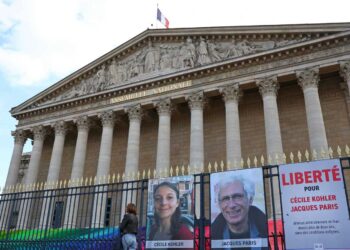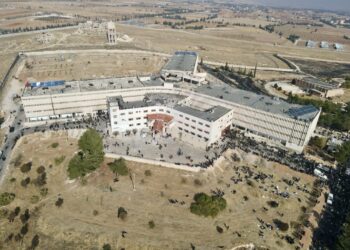Fadel Abdulghany
National commissions of inquiry occupy a distinct place within the institutional structure of transitional justice and democratic governance processes, as they are among the mechanisms used by states to investigate institutional failures, human rights violations, and issues of public concern.
These investigative bodies, at the intersection of legal, political, and social dimensions, embody an inherent tension inherent in the very nature of their existence: they are state-sponsored initiatives, yet they are also tasked with investigating failures and violations attributed to the state itself, which constitutes what might be called the “legitimacy paradox” that accompanies their design and operating mechanisms.
In 2025, Syria witnessed the formation of three main national committees in response to security and social developments in the coastal and Suwayda regions. In March of the same year, a presidential decree was issued to form an independent national committee to investigate and find the truth about the sectarian violence and grave violations witnessed in the governorates of Latakia, Tartous, and Hama, following the escalation of violence in these areas. Concurrently with the formation of the investigative committee, a Higher Committee for Civil Peace was established, aiming to contain tensions and enhance social cohesion in the region. In July, as bloody events escalated in Suwayda Governorate, a special investigative committee was formed to examine the circumstances of these developments and make appropriate recommendations to address their impact on society and the state.
For national commissions of inquiry to enjoy credibility and societal acceptance, they must be based on a set of basic principles and standards proven by historical experience and legal studies. In this two-part article, we emphasize that without adherence to these principles and procedural steps, these commissions lose a significant portion of their credibility, regardless of the level of effort and professionalism they apply in their work.
Committees with an independent budget and discretionary spending powers demonstrate greater investigative efficiency and effectiveness than committees that rely on recurring government funding.
Basic principles for designing national commissions of inquiry: independence, representation, and a clear mandate.
Institutional independence:
Structural independence refers to the existence of constitutional or legislative provisions that establish the commission as an entity independent of the executive branch and protect it from any form of political interference. However, this legal independence is not sufficient in itself in the absence of actual operational independence—that is, the practical capacity to freely conduct investigations, allocate the necessary resources, and issue findings transparently, without restrictions or direct or indirect pressure from the executive branch.
Financial sovereignty is a fundamental aspect of operational independence. It involves not only having an adequate budget but also independence in making spending decisions and allocating resources. Past experience has shown that commissions with an independent budget and discretionary spending powers demonstrate greater investigative efficiency and effectiveness than commissions that rely on recurring government funding. It is essential to establish an independent and secure financial framework from the outset, as subsequent attempts to ensure financial independence after investigations are initiated often face strong political resistance, especially if potentially controversial findings emerge.
Legal frameworks defining investigative powers constitute another fundamental pillar in ensuring the independence of commissions. Prominent among these powers are the power to subpoena witnesses, provide them with protection, and access official and confidential documents. It is crucial that these powers be enshrined in the constitution or legislation and not subject to executive discretion or interference. Legal scholars call this legal framework “zones of independence,” which provide commissions with a safe space to operate, free from potential judicial or political interference. In practical contexts, commissions’ ability to uncover the truth depends largely on how they navigate existing legislation, such as state secrets laws or executive privileges, which often pose significant obstacles to uncovering serious violations.
The process of appointing committee members also poses a fundamental paradox: while the committee requires a mandate and resources from the state to carry out its duties, its legitimacy depends largely on its independence from the very authorities that formed it. Comparative studies indicate that participatory and multi-stakeholder appointment processes provide the optimal solution to this paradox, by involving civil society, parliamentary bodies, and various social and political forces in the selection process. Transparent appointment processes—which include clear mechanisms for nomination, vetting, public consultation, and consensus-building—entail significantly higher levels of societal trust than committees appointed by unilateral executive decision. This participatory approach serves a dual purpose: on the one hand, it enhances the committee’s legitimacy and, on the other, creates societal constituencies eager to defend its independence against potential political pressure or interference.
Gender, ethnic, and regional diversity is not just a symbolic commitment to inclusive values; it is a practical necessity to ensure effective implementation and to mitigate potential conflicts.
Compositional Inclusiveness and Cognitive Diversity
Committee composition goes beyond demographic representation to include cognitive diversity—the inclusion of multiple ways of knowing and understanding the phenomena under investigation. The legitimacy of committees derives not only from descriptive representation (i.e., committee members should be demographically similar to the affected groups), but also from substantive representation (i.e., members’ ability to effectively express diverse societal interests and perspectives). This perspective requires selection criteria that prioritize a balance between professional expertise and analytical capabilities.
In this context, there is an ongoing tension between the necessity of technical expertise on the one hand, and the importance of societal legitimacy on the other. Previous investigative committee experiences indicate that the dominance of technical experts in committee membership typically leads to challenges in gaining societal trust and public engagement, while the emphasis on societal representation at the expense of technical expertise leads to weak investigative results that may lack legal credibility and scientific rigor. The best solution appears to be a deliberate hybrid formation that combines those with technical expertise, experiential knowledge, and societal acceptance. This multiplicity enables committees to move seamlessly between different knowledge systems, ensuring both investigative accuracy and societal legitimacy.
Civil society participation in commissions goes beyond a mere advisory role, becoming a driving force that fundamentally influences the outcome of investigations. Numerous experiences have shown that national civil society organizations possess indispensable characteristics in this context, most notably: community ties that enhance victim participation, expertise in documenting human rights violations, and the moral authority they have gained through ongoing human rights work. Involving civil society representatives as fully empowered commissioners, rather than merely advisors, ensures internal support for a victim-centric approach and provides an institutional memory capable of bridging the gap between official procedures and local community experiences. This participatory approach contributes to democratizing the knowledge production process and limits the traditional hierarchy that privileges official knowledge over community and experiential knowledge.
Gender, ethnic, and regional diversity are not just symbolic commitments to inclusive values; they are also a practical necessity for ensuring an effective investigation and mitigating potential conflicts. Studies of truth commissions confirm a close relationship between the inclusive and diverse composition of a commission and its success in mitigating social tensions after it begins its work. Diversity operates through multiple mechanisms: it enhances commissions’ ability to engage diverse groups, enhances affected groups’ sense of procedural fairness, and ensures that investigation outcomes reflect multiple perspectives on disputed events. The intersecting nature of identity requires attention to how factors such as gender, race, class, and regional affiliation intersect in determining victim patterns and their expectations of justice.
Investigative powers should be proportionate to the extent of the mandate, as broad mandates require strong legal powers.
Clarity of mandate and time limits
Defining the mandate of investigative committees requires managing the tension between the specificity of the mandate (i.e., its degree of precision and clear definition of scope) and the flexibility necessary to pursue new leads and emerging patterns during the investigation. Therefore, clarity of the committee’s mandate is crucial because it provides commissioners with precise guidance, sets clear expectations for the public regarding the scope and limits of the investigation, and prevents committees from exceeding their mandate or deviating from their duties. At the same time, overly specific mandates may limit a committee’s ability to track evidence and uncover systematic patterns that may extend beyond the narrow confines of the mandate.
Setting timelines for commissions is extremely complex, requiring a careful balance between the need to complete a comprehensive investigation and taking into account practical constraints in terms of time, resources, and public interest. Experience confirms that optimal timelines stem from realistic assessments of the complexity of the investigation, while avoiding open-ended timelines that would dissipate momentum and weaken public participation. Therefore, setting clear deadlines with limited extensions generates positive pressure toward an effective investigation, while avoiding protracted timelines that could undermine public confidence. However, timelines must take into account the iterative nature of truth-seeking, particularly in cases of investigations into systematic violations that may involve multiple parties and different institutions.
Legal powers must be carefully calibrated to suit the nature and requirements of the investigation, avoiding both insufficient specificity (which weakens the committees’ ability to compel cooperation) and excessive specificity (which renders proceedings quasi-criminal without providing the necessary procedural safeguards). Investigative powers must be proportionate to the scope of the mandate. Broad mandates require strong legal powers, typically including the power to subpoena witnesses and documents, the ability to conduct searches and seizures under judicial supervision, and the provision of protective measures for witnesses and victims. The exercise of these powers must be governed by clear procedural rules that ensure a balance between the efficiency of the investigation and the protection of individual rights, thus granting committees what can be described as “restricted discretion,” meaning the flexibility to operate within clear legal limits.
In the second part of this article, we will continue our discussion of the dynamics of investigation processes, focusing on victim participation, procedural justice, and mechanisms for implementing recommendations.






